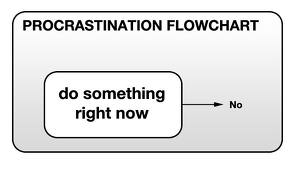by Jennifer Bowden, Training & Workshop Coordinator
As the school year draws to a close, there are plenty of people out there giving speeches and advice to new graduates. Business Insider recently posted an excellent article with a roundup of the best advice ever given to graduates from such prominent figures as Oprah Winfrey, Winston Churchill, J.K. Rowling, and others. There are some great parallels to advice for job seekers – you’re at a crossroads as well, and advice directed toward someone starting on a new stage of their life might very well apply as you figure out the next step in your career.
Know that you are in charge of your own fate. Don’t be afraid to mess up. Act with honor and integrity. Find work you love.
in charge of your own fate. Don’t be afraid to mess up. Act with honor and integrity. Find work you love.
What’s the best piece of advice you ever received?
JEFF BEZOS: Everything you are comes from your choices.
From Bezos’ 2010 commencement speech at Princeton:
“Tomorrow, in a very real sense, your life — the life you author from scratch on your own — begins.
“How will you use your gifts? What choices will you make?
“Will inertia be your guide, or will you follow your passions?
“Will you follow dogma, or will you be original?
“Will you choose a life of ease, or a life of service and adventure?
“Will you wilt under criticism, or will you follow your convictions?
“Will you bluff it out when you’re wrong, or will you apologize?
“Will you guard your heart against rejection, or will you act when you fall in love?
“Will you play it safe, or will you be a little bit swashbuckling?
“When it’s tough, will you give up, or will you be relentless?
“Will you be a cynic, or will you be a builder?
“Will you be clever at the expense of others, or will you be kind?
“I will hazard a prediction. When you are 80 years old, and in a quiet moment of reflection narrating for only yourself the most personal version of your life story, the telling that will be most compact and meaningful will be the series of choices you have made. In the end, we are our choices. Build yourself a great story. ”
CONAN O’BRIEN: Success is a lot like a bright white tuxedo. You feel terrific when you get it, but then you’re desperately afraid of getting it dirty, of spoiling it.
From his 2000 commencement speech to Harvard:
“But my mistakes have been necessary. I’ve dwelled on my failures today because, as graduates of Harvard, your biggest liability is your need to succeed, your need to always find yourself on the sweet side of the bell curve. Success is a lot like a bright white tuxedo. You feel terrific when you get it, but then you’re desperately afraid of getting it dirty, of spoiling it.
“I left the cocoon of Harvard, I left the cocoon of Saturday Night Live, I left the cocoon of the Simpsons. And each time it was bruising and tumultuous. And yet every failure was freeing, and today I’m as nostalgic for the bad as I am for the good.
“So that’s what I wish for all of you—the bad as well as the good. Fall down. Make a mess. Break something occasionally. Know that your mistakes are your own unique way of getting to where you need to be. And remember that the story is never over.”
CAROL BARTZ: The gloom and doom of today’s job market is not going to shape your future. The economy’s cyclical. Get used to it.
From her 2012 commencement address to UW Madison:
“Look past the gloom and doom headlines, and actually don’t believe that the events of today are the ones that are going to shape your future. Because your work life is very, very long. You’re the first generation that is preparing for a 50-year work life, and you know why. You have to support all of us.
“You know, that probably sounds like an eternity now, and you’re probably saying let me first get a job and then I’ll worry about working 50 years, but truly, for all kinds of reasons, health reasons, economic reasons, most of you will be working into your ’70s and ’80s, which actually isn’t all that bad. Retirement now at 62 and 65 as we think of it will be a thing of the past. You know, think of instead of this as a burden as a series of opportunities. In fact, people used to go to a job and stay in that job forever.
“That doesn’t happen anymore. How boring is that? So think of it as a chance to find and discover new things. If you start a job or business this summer or fall or a year from now, you’re going to realize how much runway you actually have. In the past, people talked about career ladders, and that’s what work felt like. If you were lucky, and you were diligent, and you sucked up and all that stuff, you went up the ladder. Do you want to do that, no. First of all, ladders are very unstable. Do a career pyramid so you have a great base, you can change your mind, you can do a lot of different things.”
STEVE JOBS: Don’t settle.
From his 2005 commencement speech to Stanford:
“I didn’t see it then, but it turned out that getting fired from Apple was the best thing that could have ever happened to me. The heaviness of being successful was replaced by the lightness of being a beginner again, less sure about everything. It freed me to enter one of the most creative periods of my life.
“I’m pretty sure none of this would have happened if I hadn’t been fired from Apple. It was awful tasting medicine, but I guess the patient needed it. Sometimes life hits you in the head with a brick. Don’t lose faith. I’m convinced that the only thing that kept me going was that I loved what I did. You’ve got to find what you love. And that is as true for your work as it is for your lovers. Your work is going to fill a large part of your life, and the only way to be truly satisfied is to do what you believe is great work. And the only way to do great work is to love what you do. If you haven’t found it yet, keep looking. Don’t settle. As with all matters of the heart, you’ll know when you find it. And, like any great relationship, it just gets better and better as the years roll on. So keep looking until you find it. Don’t settle.”
BRADLEY WHITFORD: At the end of your days, you will be judged by your gallop, not by your stumble.
From 2004 commencement speech to University of Wisconsin – Madison:
“Take action. Every story you’ve ever connected with, every leader you’ve ever admired, every puny little thing that you’ve ever accomplished is the result of taking action. You have a choice. You can either be a passive victim of circumstance or you can be the active hero of your own life. Action is the antidote to apathy and cynicism and despair. You will inevitably make mistakes. Learn what you can and move on. At the end of your days, you will be judged by your gallop, not by your stumble.
“But I do want you to be an actor in your own life. Infuse your life with action. Don’t wait for it to happen. Make it happen. Make your own future. Make your own hope. Make your own love. And whatever your beliefs, honor your creator, not by passively waiting for grace to come down from upon high, but by doing what you can to make grace happen — yourself, right now, right down here on Earth.”
HENRY KRAVIS: Relativism is not an option; it is all about honesty and loyalty.
From his 2011 commencement speech to Columbia Business School:
“Professional integrity begins with personal integrity. You cannot get away with the idea ‘our product has fewer defects than the competitor’s’ or ‘our service is not as bad as others’.’ Relativism is not an option; it is all about honesty and loyalty. These are absolutes. Trust me, they will make your lives simpler — and they carry their own rewards.”
 her you’d arrived there, made progress, or decided to pick a different destination altogether. Anytime you’re headed somewhere new it helps to have some kind of map involved; the career search is no different.
her you’d arrived there, made progress, or decided to pick a different destination altogether. Anytime you’re headed somewhere new it helps to have some kind of map involved; the career search is no different. haven’t gotten around to figuring out what you really want to do, the scariest one to face is the realization that you really don’t know where to start. People often feel like they’re supposed to have figured this out already, or that everyone else knows what they want to do (remember that annoying classmate who’s known what he wanted to be since the age of 5?). You won’t get the life you want if you don’t know what it is, and the best way to get there is do some daydreaming.
haven’t gotten around to figuring out what you really want to do, the scariest one to face is the realization that you really don’t know where to start. People often feel like they’re supposed to have figured this out already, or that everyone else knows what they want to do (remember that annoying classmate who’s known what he wanted to be since the age of 5?). You won’t get the life you want if you don’t know what it is, and the best way to get there is do some daydreaming. in charge of your own fate. Don’t be afraid to mess up. Act with honor and integrity. Find work you love.
in charge of your own fate. Don’t be afraid to mess up. Act with honor and integrity. Find work you love.










